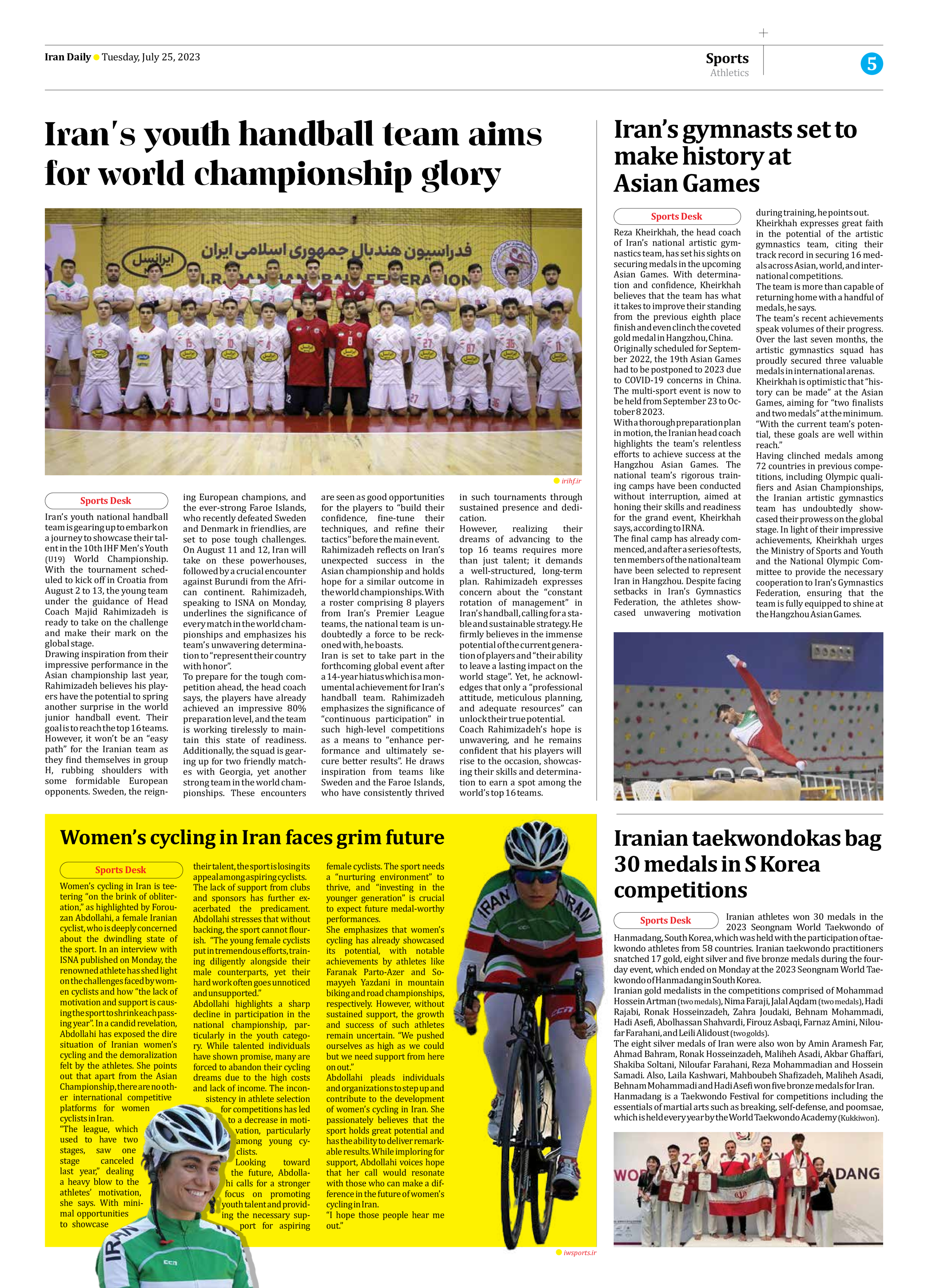
Iran’s youth handball team aims for world championship glory
Iran’s youth national handball team is gearing up to embark on a journey to showcase their talent in the 10th IHF Men’s Youth (U19) World Championship. With the tournament scheduled to kick off in Croatia from August 2 to 13, the young team under the guidance of Head Coach Majid Rahimizadeh is ready to take on the challenge and make their mark on the global stage.
Drawing inspiration from their impressive performance in the Asian championship last year, Rahimizadeh believes his players have the potential to spring another surprise in the world junior handball event. Their goal is to reach the top 16 teams.
However, it won’t be an “easy path” for the Iranian team as they find themselves in group H, rubbing shoulders with some formidable European opponents. Sweden, the reigning European champions, and the ever-strong Faroe Islands, who recently defeated Sweden and Denmark in friendlies, are set to pose tough challenges. On August 11 and 12, Iran will take on these powerhouses, followed by a crucial encounter against Burundi from the African continent. Rahimizadeh, speaking to ISNA on Monday, underlines the significance of every match in the world championships and emphasizes his team’s unwavering determination to “represent their country with honor”.
To prepare for the tough competition ahead, the head coach says, the players have already achieved an impressive 80% preparation level, and the team is working tirelessly to maintain this state of readiness. Additionally, the squad is gearing up for two friendly matches with Georgia, yet another strong team in the world championships. These encounters are seen as good opportunities for the players to “build their confidence, fine-tune their techniques, and refine their tactics” before the main event.
Rahimizadeh reflects on Iran’s unexpected success in the Asian championship and holds hope for a similar outcome in the world championships. With a roster comprising 8 players from Iran’s Premier League teams, the national team is undoubtedly a force to be reckoned with, he boasts.
Iran is set to take part in the forthcoming global event after a 14-year hiatus which is a monumental achievement for Iran’s handball team. Rahimizadeh emphasizes the significance of “continuous participation” in such high-level competitions as a means to “enhance performance and ultimately secure better results”. He draws inspiration from teams like Sweden and the Faroe Islands, who have consistently thrived in such tournaments through sustained presence and dedication.
However, realizing their dreams of advancing to the top 16 teams requires more than just talent; it demands a well-structured, long-term plan. Rahimizadeh expresses concern about the “constant rotation of management” in Iran’s handball, calling for a stable and sustainable strategy. He firmly believes in the immense potential of the current generation of players and “their ability to leave a lasting impact on the world stage”. Yet, he acknowledges that only a “professional attitude, meticulous planning, and adequate resources” can unlock their true potential.
Coach Rahimizadeh’s hope is unwavering, and he remains confident that his players will rise to the occasion, showcasing their skills and determination to earn a spot among the world’s top 16 teams.







